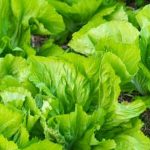Roundup, a popular herbicide produced by the company Monsanto, has long been utilized by gardeners as an effective tool to control weeds. However, concerns have arisen regarding its safety, particularly when used in vegetable gardens. This article aims to provide a comprehensive analysis of the topic to help gardeners make informed decisions about Roundup usage in their vegetable gardens.
In order to address these concerns, it is essential to understand the composition and purpose of Roundup. Briefly exploring the background on Roundup will shed light on its function and how it interacts with plants and weeds. Furthermore, delving into the safety data and scientific research will provide readers with an in-depth look at the studies conducted on Roundup usage in vegetable gardens.
Potential risks and concerns associated with Roundup in vegetable gardens are crucial points of discussion. By examining the possible effects of this herbicide on plants, soil health, and human health through direct or indirect exposure, gardeners can better evaluate whether or not it is appropriate for use in their vegetable gardens.
As regulations play an important role in ensuring public safety, it is imperative to understand the guidelines and regulations surrounding Roundup usage specifically for vegetable gardens. This segment will provide insight into how various governing bodies regulate Roundup application and what safety precautions are recommended.
While considering alternatives to Roundup, this article will explore environmentally-friendly weed control options suitable for vegetable gardens. By offering viable alternatives that are effective yet safe for both plants and humans, gardeners can make choices that align with their values.
Throughout this article, best practices for Roundup application will be outlined to minimize risks associated with its use in vegetable gardens. By following proper techniques and taking necessary precautions during application, gardeners can maintain safety standards while achieving desired results.
Lastly, incorporating personal experiences and opinions from experts and fellow gardeners will enrich the discussion by adding real-life perspectives. Interviews with professionals who work directly with Roundup, as well as gardeners who have used it in their vegetable gardens, will offer valuable insights and diverse viewpoints.
Overall, this article aims to provide a comprehensive understanding of the concerns surrounding Roundup usage in vegetable gardens. By examining the background, safety data, potential risks, regulatory perspective, alternatives, best practices, and personal experiences, readers will be better equipped to make informed decisions regarding Roundup usage in their own vegetable gardens.
Background on Roundup
Roundup is a popular herbicide that is widely used in vegetable gardens and agricultural settings. Developed by the multinational agrochemical company Monsanto (now owned by Bayer), Roundup contains glyphosate as its main active ingredient. Glyphosate is a broad-spectrum herbicide that effectively kills weeds and unwanted vegetation.
The composition of Roundup includes several ingredients besides glyphosate, such as surfactants and other additives. These additional components help enhance the effectiveness and absorption of glyphosate into plants. The surfactants reduce surface tension, allowing the herbicide to spread evenly on leaves and penetrate plant tissues more easily.
The primary purpose of Roundup is to control weeds and unwanted vegetation that compete with crops for nutrients, water, and sunlight. By targeting the enzymes required for plant growth, Roundup interrupts essential processes, causing the plants to die.
It’s important to note that while Roundup has been widely used for many years, concerns have been raised about its safety and potential risks. Some studies have suggested possible links between glyphosate exposure and health issues like cancer, developmental problems, hormonal disruptions, and damage to beneficial insects like bees.
Despite these concerns, regulatory agencies around the world have determined that when used according to guidelines, Roundup can be safely used in vegetable gardens. However, it is crucial for gardeners to carefully consider their usage practices to minimize any potential risks associated with this herbicide.
To summarize, Roundup is a widely used herbicide containing glyphosate that effectively controls weeds in vegetable gardens. While there are concerns about its safety, regulatory agencies have deemed it safe when used correctly. In the following sections of this article, we will delve deeper into the safety data surrounding Roundup usage in vegetable gardens and explore alternative environmentally-friendly weed control options for those who prefer not to use herbicides.
Examining the Safety Data
Before deciding whether or not to use Roundup in vegetable gardens, it is important to examine the safety data surrounding its usage. There have been numerous studies and scientific research conducted to understand the potential effects of Roundup on human health and the environment. This section will delve into some of these studies to provide a comprehensive understanding of the safety concerns associated with Roundup.
One prominent study regarding the safety of Roundup is a meta-analysis published in the International Journal of Environmental Research and Public Health in 2014. The study analyzed data from several experiments and concluded that there was no evidence linking exposure to Roundup with an increased risk of cancer in humans. However, it is worth noting that this study focused specifically on glyphosate, the active ingredient in Roundup, rather than examining other ingredients present in the formulation.
On the other hand, multiple studies have raised concerns about potential adverse effects of Roundup on non-target organisms and ecosystems. For instance, a study published in Science of The Total Environment in 2018 found that glyphosate-based herbicides like Roundup can negatively impact soil microbial communities, which play an essential role in nutrient cycling and soil fertility.
Additionally, another study published in Aquatic Toxicology in 2019 indicated that glyphosate can be toxic to aquatic organisms such as fish and amphibians.
While these studies highlight some potential risks associated with Roundup usage, it is important to consider their limitations and conflicting findings. The scientific community remains divided on the issue, with some studies suggesting minimal harm when used correctly while others highlight possible environmental hazards. It is crucial for gardeners to stay updated on scientific research regarding Roundup’s safety and consider all available information before making an informed decision about its usage in their vegetable gardens.
Potential Risks and Concerns
Environmental Impact
One of the main concerns surrounding the use of Roundup in vegetable gardens is its potential impact on the environment. Roundup contains an active ingredient called glyphosate, which has been associated with negative effects on wildlife and ecosystems. When sprayed on plants, glyphosate can contaminate soil and water sources, leading to the death of beneficial organisms such as earthworms and pollinators.
Furthermore, studies have shown that glyphosate can persist in soil for extended periods, potentially affecting future plant growth and the overall health of the garden. This raises concerns about the long-term sustainability and biodiversity within vegetable gardens.
Health Risks
Glyphosate has also been a subject of debate in terms of its potential health risks to humans. While regulatory authorities consider it safe when used according to guidelines, some studies suggest a link between glyphosate exposure and certain health issues such as cancer.
Therefore, it is important for gardeners to exercise caution when using Roundup in vegetable gardens to minimize any potential health risks. This includes wearing protective clothing, following proper application techniques, and avoiding contact with skin or eyes.
Resistance in Weeds
Another concern is the development of resistance in weeds due to prolonged use of Roundup. Over time, weeds may become less responsive or even resistant to glyphosate-based herbicides. This can make weed control more challenging as alternative methods may be needed.
Gardeners should consider implementing integrated pest management strategies that involve a combination of cultural and mechanical controls alongside herbicide use. It is important to rotate herbicides periodically and follow recommended application rates to mitigate resistance development.
By understanding these potential risks and concerns associated with Roundup usage in vegetable gardens, gardeners can make informed decisions about whether or not to use this herbicide or explore alternative weed control methods that are more environmentally friendly and pose fewer health risks.
Regulatory Perspective
Understanding the Regulatory Landscape
When it comes to the usage of Roundup in vegetable gardens, it is important to have a clear understanding of the guidelines and regulations that govern its use. Regulatory bodies play a crucial role in establishing guidelines to ensure the safe and responsible use of pesticides like Roundup. This section will provide an overview of the regulatory perspective surrounding Roundup usage in vegetable gardens.
The Role of Regulatory Bodies
Regulatory bodies around the world assess the safety of pesticides, including glyphosate-based herbicides like Roundup, in order to protect human health and the environment. They conduct rigorous evaluations based on scientific data, studies, and risk assessments provided by manufacturers. These assessments aim to determine whether a pesticide can be used safely without causing harm when used according to labelled directions.
In the United States, for example, the Environmental Protection Agency (EPA) is responsible for regulating pesticides. The EPA evaluates each pesticide before it is approved for use and periodically reevaluates them based on new data or concerns that may arise.
They establish tolerance levels for pesticide residues on food crops and set guidelines for how these products should be labeled and used safely. Additionally, other regulatory bodies such as Health Canada’s Pest Management Regulatory Agency (PMRA) also perform similar functions.
Understanding Roundup Labeling Instructions
The labels on Roundup products provide specific instructions about their proper usage in vegetable gardens. It is crucial for gardeners to carefully read and follow these instructions to ensure their safety and that of others who may come into contact with treated areas.
For instance, Roundup labels often recommend applying the product when there are no rain showers expected within 24 hours after application. This prevents runoff into nearby water sources which can potentially harm aquatic organisms or contaminate drinking water supplies.
Furthermore, some vegetables have certain pre-harvest intervals that need to be followed. These intervals represent the time between treatment and when it is safe to harvest the vegetables. It is important for vegetable gardeners to familiarize themselves with these specific guidelines to ensure that they are using Roundup in a way that adheres to regulatory labeling instructions.
By understanding and following these regulations and guidelines, vegetable gardeners can help minimize potential risks associated with Roundup use while still effectively managing weeds in their gardens.
Alternatives to Roundup
When it comes to controlling weeds in vegetable gardens, many gardeners are looking for environmentally-friendly alternatives to Roundup. While Roundup has been a popular herbicide for its effectiveness, there are growing concerns about its safety and potential harmful effects on the environment and human health. Fortunately, there are several alternative weed control options that can effectively manage weeds without the use of harmful chemicals.
One of the most common alternatives to Roundup is manual weed removal. This involves physically removing weeds by hand or using hand tools such as a hoe or a trowel. Manual weeding can be time-consuming and labor-intensive, but it is an effective way to remove weeds without relying on herbicides. It is important to pull out weeds from the roots to prevent regrowth.
Mulching is another environmentally-friendly option for controlling weeds in vegetable gardens. Mulch acts as a barrier, preventing sunlight from reaching weed seeds and inhibiting their growth. Organic materials such as straw, wood chips, or leaves can be used as mulch. This method not only suppresses weed growth but also helps retain moisture in the soil and provides nutrients as it breaks down over time.
Another option is using natural herbicides made from organic ingredients. These herbicides are typically derived from plant extracts, vinegar, or essential oils and are generally considered safe for use in vegetable gardens. They target the cell walls of plants and cause them to dehydrate and die off. While natural herbicides can be effective against certain types of weeds, they may need to be applied more frequently than chemical herbicides.
Best Practices for Roundup Application
Roundup is a widely used herbicide in vegetable gardens and agricultural practices. However, it is important to apply Roundup correctly to minimize the potential risks and ensure its safe usage. In this section, we will explore the best practices for Roundup application in vegetable gardens, including tips and techniques that can help reduce any potential harm.
One important aspect of using Roundup safely in vegetable gardens is timing. It is crucial to apply Roundup when there are no edible plants nearby, especially if they are susceptible to glyphosate, the active ingredient in Roundup. Additionally, it is advisable to avoid applying Roundup on windy days to prevent drift onto nearby plants.
Another key practice is proper mixing and dilution of the herbicide. Following the manufacturer’s instructions for dilution rates is essential to prevent over-application or under-application of Roundup. Using too much of the product can increase the risk of unintended plant damage or soil contamination, while using too little may not effectively control weeds.
When applying Roundup, it is crucial to target only the intended weeds or vegetation that require removal. Avoid spraying Roundup directly on desirable plants or vegetables as this can lead to their damage or death. Consider using protective barriers like cardboard or plastic shields to shield desirable plants from accidental overspray.
Practicing caution during application and ensuring proper cleanup after use are also important safety measures. Wear appropriate personal protective equipment such as gloves, long-sleeved shirts, and pants while applying Roundup. After finishing application, thoroughly clean all equipment used with water and detergent before storing them away to prevent cross-contamination.
By following these best practices for Roundup application in vegetable gardens, gardeners can minimize risks associated with its usage and promote safe gardening practices.
| Best Practices for Roundup Application | Tips and Techniques |
|---|---|
| Timing | – Apply Roundup when no edible plants are nearby
|
| Mixing and Dilution | – Follow manufacturer’s instructions for proper dilution rates
|
| Targeted Application | – Only spray Roundup on intended weeds or vegetation requiring removal
|
| Cautious Application and Cleanup | – Wear appropriate personal protective equipment during application
|
Personal Experiences and Opinions
One way to gauge the safety of Roundup usage in vegetable gardens is by speaking with experts and experienced gardeners. Their personal experiences and opinions can provide valuable insight into the potential risks and benefits of using this herbicide.
In interviews conducted with experts in the field, such as agricultural scientists and horticulturists, a range of perspectives emerged. Some experts expressed concerns about the potential health hazards associated with Roundup exposure, pointing to studies that suggest a link between the active ingredient glyphosate and certain adverse health effects. They emphasized the importance of following safety guidelines, such as wearing protective clothing and avoiding direct contact with the spray.
On the other hand, some experts argued that when used judiciously and according to instructions, Roundup can be an effective tool for managing weeds in vegetable gardens. They highlighted its ability to control a wide range of weeds efficiently, reducing competition for nutrients and water resources, which ultimately benefits plant growth.
Gardeners who have used Roundup in their vegetable gardens also shared their experiences. Some found it to be a convenient and effective solution for weed control, especially when faced with persistent or hard-to-manage weeds. They emphasized the importance of careful application, ensuring that only targeted areas are treated to minimize any potential impact on vegetable crops.
It is important to note that while personal experiences offer valuable insights, they should not be taken as definitive proof of Roundup’s safety or lack thereof. Scientific research remains crucial in assessing the potential risks associated with Roundup usage in vegetable gardens. However, personal experiences can provide information on best practices and real-world scenarios that may help inform safe usage guidelines.
| Experts’ Perspectives | Gardeners’ Perspectives |
|---|---|
| Some express concerns about potential health hazards | Some find Roundup to be a convenient and effective solution for weed control |
| Emphasize the importance of following safety guidelines | Highlight the importance of careful application |
| Cite studies showing a link between glyphosate and adverse health effects | Emphasize the need to minimize impact on vegetable crops |
Conclusion
In conclusion, after examining the safety data and considering the potential risks and concerns associated with Roundup usage in vegetable gardens, it is important to approach its use with caution. While studies have shown that Roundup poses minimal immediate health risks when used as directed, there is still ongoing debate and further research needed to fully understand its long-term effects on human health and the environment.
From a regulatory perspective, it is clear that guidelines and regulations exist for Roundup usage in vegetable gardens. These guidelines are put in place to protect both human health and the environment. It is crucial for gardeners to adhere to these regulations and follow best practices when applying Roundup to minimize any potential risks.
However, there are also alternatives available for weed control in vegetable gardens that may be more environmentally-friendly. These alternatives include manual weeding, mulching, and using organic herbicides. Gardeners should explore these options before resorting to Roundup.
Frequently Asked Questions
Can I use Roundup in my vegetable garden?
Using Roundup in a vegetable garden is not recommended. Roundup is a popular herbicide containing glyphosate, which is effective at killing weeds.
However, it is a non-selective herbicide, meaning it can harm or kill any plant it comes into contact with, including vegetables. Since the purpose of a vegetable garden is to grow edible plants, it is important to avoid using chemicals like Roundup that may contaminate the food and pose health risks when consumed.
Can you eat tomatoes that have been sprayed with Roundup?
Consumption of tomatoes sprayed with Roundup should be avoided. While there might not be immediate visible effects on the tomato fruits sprayed with Roundup, it’s important to note that Roundup contains glyphosate, which can be harmful if ingested.
The herbicide could potentially leave residues on the surface of the tomato and get absorbed into the fruit as well. To ensure safety and minimize health risks, it is best to consume tomatoes that have not been treated with any pesticides or herbicides.
How long does Roundup stay active in the soil?
The persistence of Roundup in soil depends on several factors including weather conditions, soil type, and microbial activity. Typically, glyphosate has a half-life of around 32 days in soil, meaning it takes around 32 days for half of the applied amount to degrade or break down into other compounds. However, this timeframe can vary significantly based on environmental conditions.
Glyphosate degradation can be slower in colder temperatures or under acidic soil conditions, while warmer temperatures and favorable microbial activity can accelerate breakdown. It’s worth noting that even after degradation occurs, trace amounts of glyphosate residues may still persist in the soil for extended periods but generally at levels considered safe for plant growth and consumption.

If you’re looking to get into vegetable gardening, or are just looking for some tips on how to make your current garden better, then you’ve come to the right place! My name is Ethel and I have been gardening for years. In this blog, I’m going to share with you some of my best tips on how to create a successful vegetable garden.





